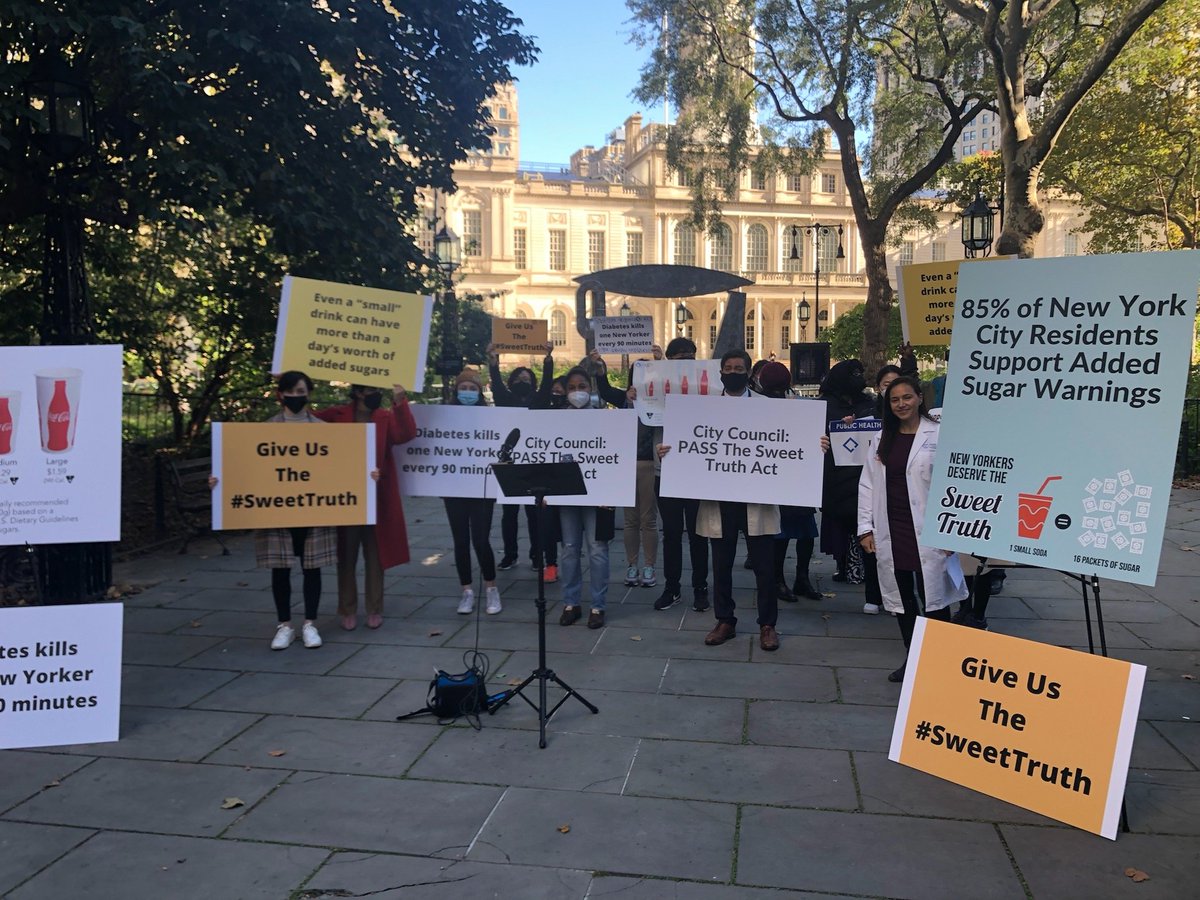At the final hearing of 2021, the New York City Council enacted Int No. 1326-b, coined “The Sweet Truth Act,” requiring restaurant chains to notify customers of prepackaged foods and beverages containing more than 50 grams of added sugars (the recommended daily allowance based on the average 2,000-calorie diet). Once the final rules are promulgated and the law goes into effect, businesses will face monetary penalties for failing to comply. The law is an attempt to better inform consumers about the nutritional value of their food choices in settings where the details of a meal’s content are often obscure and easily overlooked. It is the first legislative act of its kind in the United States (New York City was also the first to pass a similar law about sodium content). Similar legislation exists in Chile and has shown promising results in recent years.
The act comes after a 2019 push for the bill’s passage by NYC council member, Mark Levine, with support from the Center for Science in the Public Interest, the Laurie M. Tisch Center for Food, Education & Policy, and many other advocates, to reduce the rate of diet-related diseases in New York City. Currently, an estimated 987,000 NYC residents have type 2 diabetes and over half of city residents have overweight or obesity—health conditions that are greatly affected by the excess calories found in foods high in added sugars. In the last few years since the bill’s introduction, the Covid-19 pandemic propelled a rise of these conditions, typically due to a variety of factors like physical inactivity, stress, and limited access to healthy food options. Moreover, when New York City was the U.S. epicenter of the pandemic in the spring of 2020, New York City experienced the largest increase of any urban area in the U.S. in nonrespiratory deaths, due to heart disease (398%) and diabetes (356%).
Consuming foods high in added sugars contributes to excess calorie intake without providing the fiber, vitamins, minerals, or other macronutrients of more nutrient-dense, whole foods. These “empty calories,” as they are sometimes called, are typically found in highly-processed portable snacks, or as ultra-filling sugar-sweetened beverages, especially fountain sodas. In these forms, they are quickly and easily ingested, making their highly-caloric nature and sugar content hard to perceive. The labeling that Int No. 1326-b mandates intend to correct for that by requiring an “icon to be displayed in a clear and conspicuous manner on (i) menus or menu boards adjacent to the listed prepackaged food items and (ii) prepackaged food items on display.” The bill’s supporters feel that informing the consumer about the potentially harmful contents of their food is a powerful first step towards giving them more control over their choices and their health.
Yet, others have questioned the potential impact of the bill as passed. Earlier versions of the bill called for this warning label to accompany all menu items—not just prepackaged items—including made-to-order items like salads and sandwiches with sauces and other condiments high in added sugars, cookies, ice cream, and fountain drinks. However, opponents succeeded in getting lawmakers to narrow the legislation to cover fewer product categories, resulting in limited signage that may be less effective. Under the law’s current language, those made-to-order items, though commonly sold, would not require the same labeling, thus creating confusion and providing incomplete information to consumers. The law must be amended to include all menu items, rather than the current arbitrary and confusing carve-out for prepackaged items.
With over 2,000 chain restaurants scattered throughout the five boroughs, addressing their sale of high added sugar products is a necessary step towards better health for New Yorkers. As inflation rises, inexpensive, low-quality food options with little nutritional value often become the most economically viable. This is especially true in neighborhoods where fresh food markets are scarce, leaving room for fast-food chains to concentrate.
The Sweet Truth Act, potentially one of many similarly-aimed reforms to come, is a much-needed step towards helping reduce these diet-related conditions and creating a healthier and more knowledgeable New York City.
